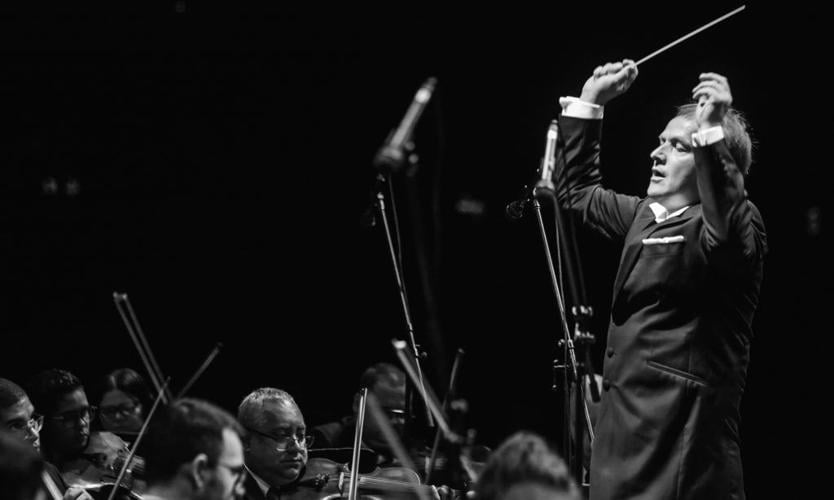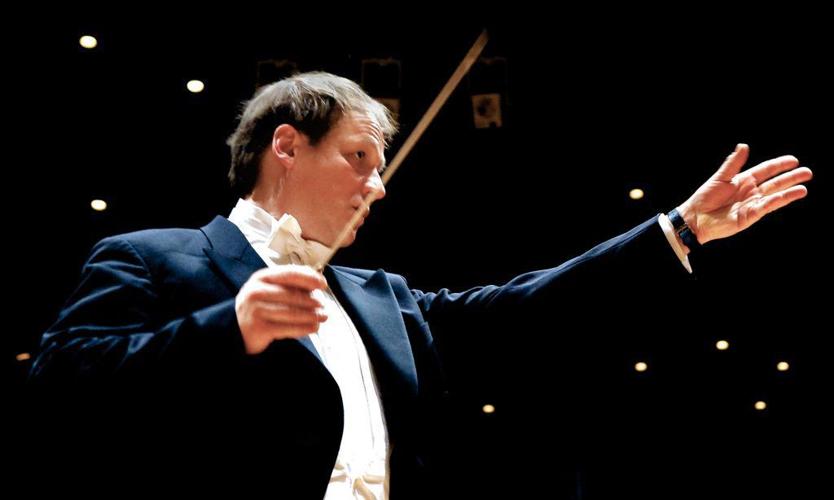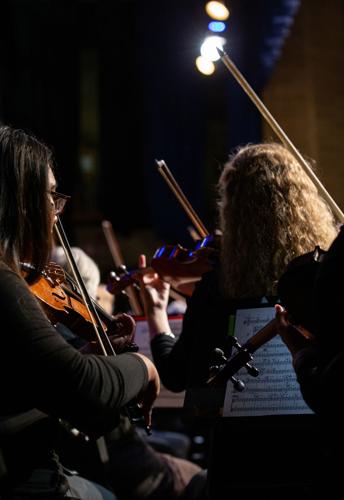Beethoven is part of German conductor/pianist Matthias Manasi’s musical DNA so when he got the invite to guest conduct an all-Beethoven program in Tucson, he jumped. As a bonus, he also gets to solo on piano with the Southern Arizona Symphony Orchestra in two performances this weekend.
“I am very much looking forward to collaborating with the Southern Arizona Symphony Orchestra,” he said in an email interview from Germany last week.
Tucson is only the second American city to host Manasi, who has an active conducting career in Europe. He has conducted twice in Buffalo, New York, with the Nickel City Opera; he has been the company’s music director since 2017.
On Saturday, Feb. 15, and Sunday, Feb. 16, he will lead the volunteer SASO in Beethoven’s Symphony No. 7 as well as the composer’s “Turkish March” from “The Ruins of Athens.”
“I find Beethoven’s music to be so universal that I think that if someone came from another planet, you should play Beethoven’s music for him first because it’s the best way to understand our human civilization,” said Manasi, the son of musicians.
“At the Seventh Symphony in our concert, the audience will feel that the whole world vibrates with Beethoven’s music. One of the most important messages of Beethoven ‘s music is that it stands for peace and freedom, which is the reason why it will always be (relevant).”
Manasi performed his first concert, an all-Beethoven program, at age 10. Since then, Beethoven has been a big part of his repertoire.
“I grew up with Beethoven. His music was always a kind of daily inspiration, which ... took me somehow on a philosophical journey,” he said. “With Beethoven’s music we discover and get to know other facets of our personalities and we get to experience a new perspective on how we could think and live as human beings. This is because his music is very human and not just an abstract art.”
Manasi suspects that SASO audiences might hear a little German accent to the Seventh with him at the podium. Part of that is cultural heritage, part goes back to his lifelong connection to Beethoven’s works.
“Since Beethoven was born in Bonn, German was his mother tongue. So he grew up through all his childhood with the sound of the German language, with German songs, etc. and you can feel that the sound of the German language is unconsciously in his music,” he said. Manasi also will perform the piano solo on Richard Strauss’s suite “Le Bourgeois Gentilhomme.”
“I am a big fan of the music of Richard Strauss, and I like to play his music on the piano and love his music as a conductor,” he said, adding that “The Citizen as Nobleman” is one of the only works Strauss composed for piano and orchestra.
“One of the challenges is that the solo part of the piano has many places where the piano is very soloistic in the foreground and then in other places where the piano accompanies more in the orchestra and provides interesting colors and structures. This changing dynamic is very interesting.”
Things to listen for in the nine-movement suite, he said, include the dramatic third movement, “The Fencing Master.”
“It is basically a miniature piano concerto,” he explained. “Strauss prescribes ‘con bravura’ and it is principally left to the pianist to delineate the distortions and grotesquenesses of the fencing scene, so that it is fully effective in the concert hall. One can rarely imagine a more brilliant virtuoso piece for piano and chamber orchestra.”






